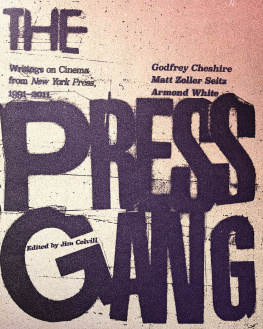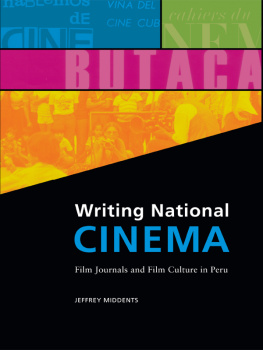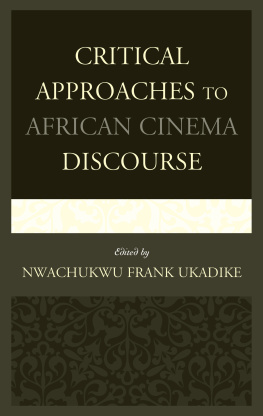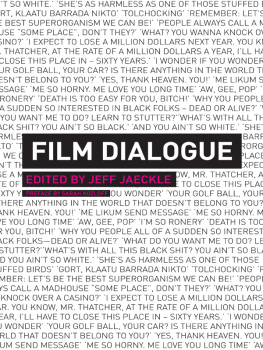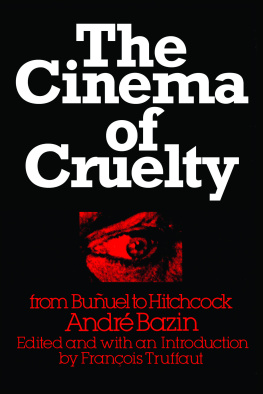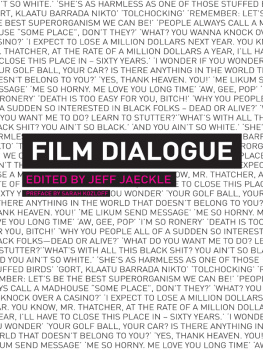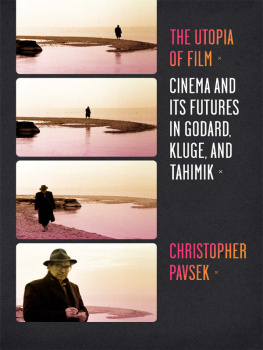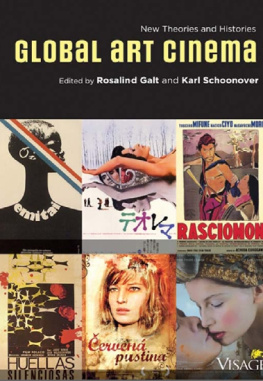a seven stories press first edition
Copyright 2020 by Godfrey Cheshire, Matt Zoller Seitz, and Armond White
Introduction 2020 by Jim Knipfel
Editors Foreword 2020 by Jim Colvill
All rights reserved.
No part of this book may be reproduced,
stored in a retrieval system, or transmitted in any
form or by any means, including mechanical, electronic,
photocopying, recording, or otherwise, without the
prior written permission of the publisher
seven stories press
140 Watts Street
New York, NY 10013
www.sevenstories.com
College professors and high school and mddile school teachers may order free examination copies of Seven Stories Press titles. To order, visit www.sevenstories.com or send a fax on school letterhead to (212) 226-1411.
library of congress cataloging-in-publication data
Names: Cheshire, Godfrey, author. | Seitz, Matt Zoller, author. | White, Armond, author. | Colvill, Jim, editor.
Title: The press gang : writings on cinema from New York Press, 19912011 | Godfrey Cheshire, Matt Zoller Seitz, Armond White ; edited by Jim Colvill.
Other titles: New York press (New York, N.Y. : 1896)
Description: Seven Stories Press First Edition. | New York : Seven Stories Press, 2020. | Includes index.
Identifiers: LCCN 2019056523 (print) | LCCN 2019056524 (ebook) | ISBN 9781609809775 (trade paperback) | ISBN 9781609809782 (ebook)
Subjects: LCSH: Motion pictures. | Motion picturesReviews.
Classification: LCC PN1995 .P735 2020 (print) | LCC PN1995 (ebook) | DDC 791.43/75dc23
LC record available at https://lccn.loc.gov/2019056523
LC ebook record available at https://lccn.loc.gov/2019056524
Book design by Jim Colvill
Cover and title pages by JS Aurelius; www.jsaurelius.com
Printed in USA
9 8 7 6 5 4 3 2 1
Contents
Editors Foreword
C ontained in these pages is a selection of film criticism written by Godfrey Cheshire, Matt Zoller Seitz, and Armond White for the no-longer-with-us alternative weekly paper, New York Press. (Ill cede discussion of this truly singular publication to Press columnist Jim Knipfels introduction). This book serves as much as an act of resurrection as anything else as, for the casual reader, the glories of the NYPress film section have been largely unavailable for many years. Some of the writing does remain online, albeit in fragments with problematic formatting and often incorrect bylines. While the more adventurous may choose to seek out the paper at a library, they will be frustrated to find that no complete archive of the NYPress exists anywhere. Thus, assembling this volume was a detective act in itself, and involved collecting pieces from all kinds of different sources: the Internet, writers own collections, fan clippings and library holdings. Although this book represents only a very small fraction of the total amount of words written, it is indeed of considerable length. Given the near-total unavailability of so much of it, I hope you will forgive my indulgence.
For anyone expecting some kind of house style or unified voice, the film section of the NYPress could be an invigorating experience. Writing the kind of long-form criticism that is unfortunately all too rare these days, Cheshire, Seitz, and White constituted three distinctly different voices, each with equally accomplished, yet notably individual, perspectives on cinema. There seemed to be little restrictions placed on themcertainly during what might be termed the papers glory years: roughly 1996 till 2004and their distinctive tastes and approaches were often positioned in direct dialogue with each other, a constant critical conversation that frequently saw each writer directly challenging his colleagues. Dialogue is important in criticism, and here you can find a healthy example of it existing under one proverbial roof.
Picking up the NYPress each week you were never sure exactly what you were going to get: the film sections weekly columns included polemics, reviews, interviews, festival reports and features. A far cry from what is often derisively termed the consumer report mode of criticism, these three writers were passionately engaged with the film culture of both their own time, and what had come beforeNew Yorks vibrant repertory scene providing them ample opportunity to reckon with the cinema of the past.
In sequencing and compiling the book, I have tried as best as possible to recreate the feeling of reading these columns as they hit the press. Thus it seemed best to present them chronologically, and preserve the NYPress sense of variety, rather than divide the content up into thematic sections. Each writer had very different tenures at the paper and thus the books sections reflect this, with Part 3covering 1997-2000, when Cheshire, Seitz and White all shared the papers pagesbeing easily the longest. The Press Gang is sequenced to form a narrative of sorts, providing a portrait not only of the development of these three critical voices, but also a crucial time in film culture that saw the rise of American independent cinema, the burgeoning of significant foreign film movements in Iran and Taiwan, Dogme 95 in Denmark, the switch from celluloid to digital (in both exhibition and production methods), the rise of Internet criticism, as well as the latter career stretches of the New Hollywood and Nouvelle Vague. This book is designed to be read from beginning to end, although I should perhaps say it is designed so it can be read from beginning to endits hefty size will no doubt cause many to dip in. The writing has been kept as it was published, aside from some small occasional edits. What you read here are the opinions of these writers at the time of initial publication.
When deciding what to select for the book I took into account three criteria: firstly, the quality of the writing; secondly, the continued popularity/relevance of the film/films in question; thirdly, how the piece speaks to others also contained in this book. Spielberg, one of the few filmmakers all writers were in agreement on, is the most represented director (reviews of Amistad, Saving Private Ryan, A.I. Artificial Intelligence, The Terminal and Munich appear). This attests not only to the sheer amount of writing on the filmmakerI could easily have included considerably more, a fact that wont surprise anyone considering the frequency his name comes up in the following pagesbut also its high quality. Other (then) working directors that are frequently returned to are Terrence Malick, Brian De Palma, Robert Altman, the Coen brothers, Martin Scorsese, Stanley Kubrick, Oliver Stone, Abbas Kiarostami, and Jean-Luc Godard. Established auteurs such as Alfred Hitchcock and Robert Bresson are also touched on, as are (then) emerging filmmakers such as Paul Thomas Anderson, Lars von Trier, Todd Haynes, Steven Soderbegh, Christopher Nolan, and Quentin Tarantino. Not all of this coverage is praise, but often a negative assessment can say as much as a positive one, especially when defining a critical stance and approach. You will also find interviews with Abbas Kiarostami, Mohsen Makhmalbaf, Edward Yang, Hou Hsiao-hsien, Crispin Glover, and Robert Drew; essays on digital projection, the New York Film Critics Circle, the terrorist attacks of 9/11, and cinematic responses to the War on Terror; and festival reports from Cannes, Sundance, and Venice. As will be apparent from reading only a small sample of the writing, Cheshire, Seitz, and White certainly had their own individual preoccupations and passions. The one thing that seemingly united all of them was an unwavering passion for cinema, coupled with a true belief in both the role film criticism can play, and its validity as a discipline in and of itself.

